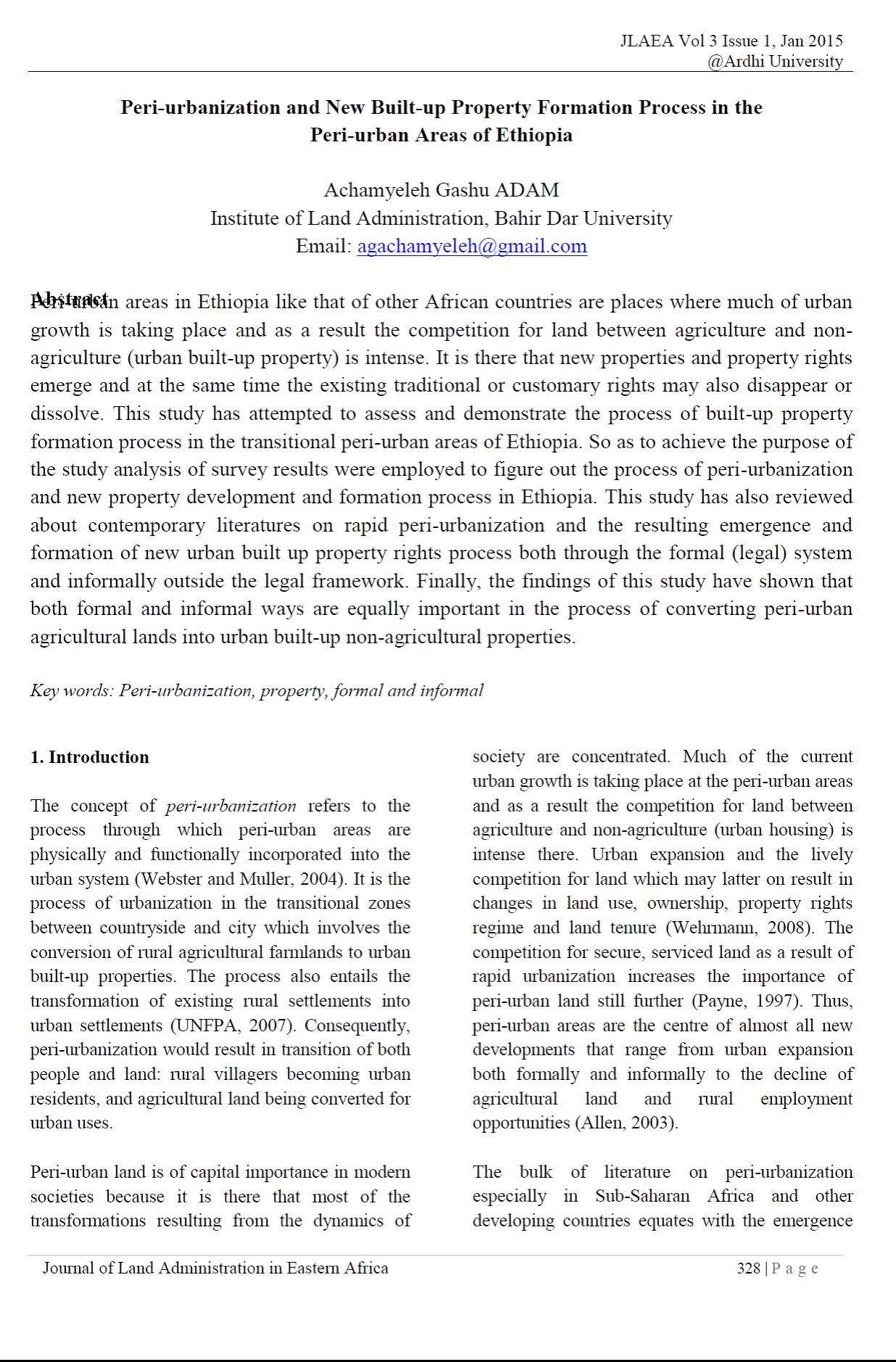Peri-urbanization and New Built-up Property Formation Process in the Peri-urban Areas of Ethiopia
Peri-urban areas in Ethiopia like that of other African countries are places where much of urban growth is taking place and as a result the competition for land between agriculture and nonagriculture (urban built-up property) is intense. It is there that new properties and property rights emerge and at the same time the existing traditional or customary rights may also disappear or dissolve. This study has attempted to assess and demonstrate the process of built-up property formation process in the transitional peri-urban areas of Ethiopia.





